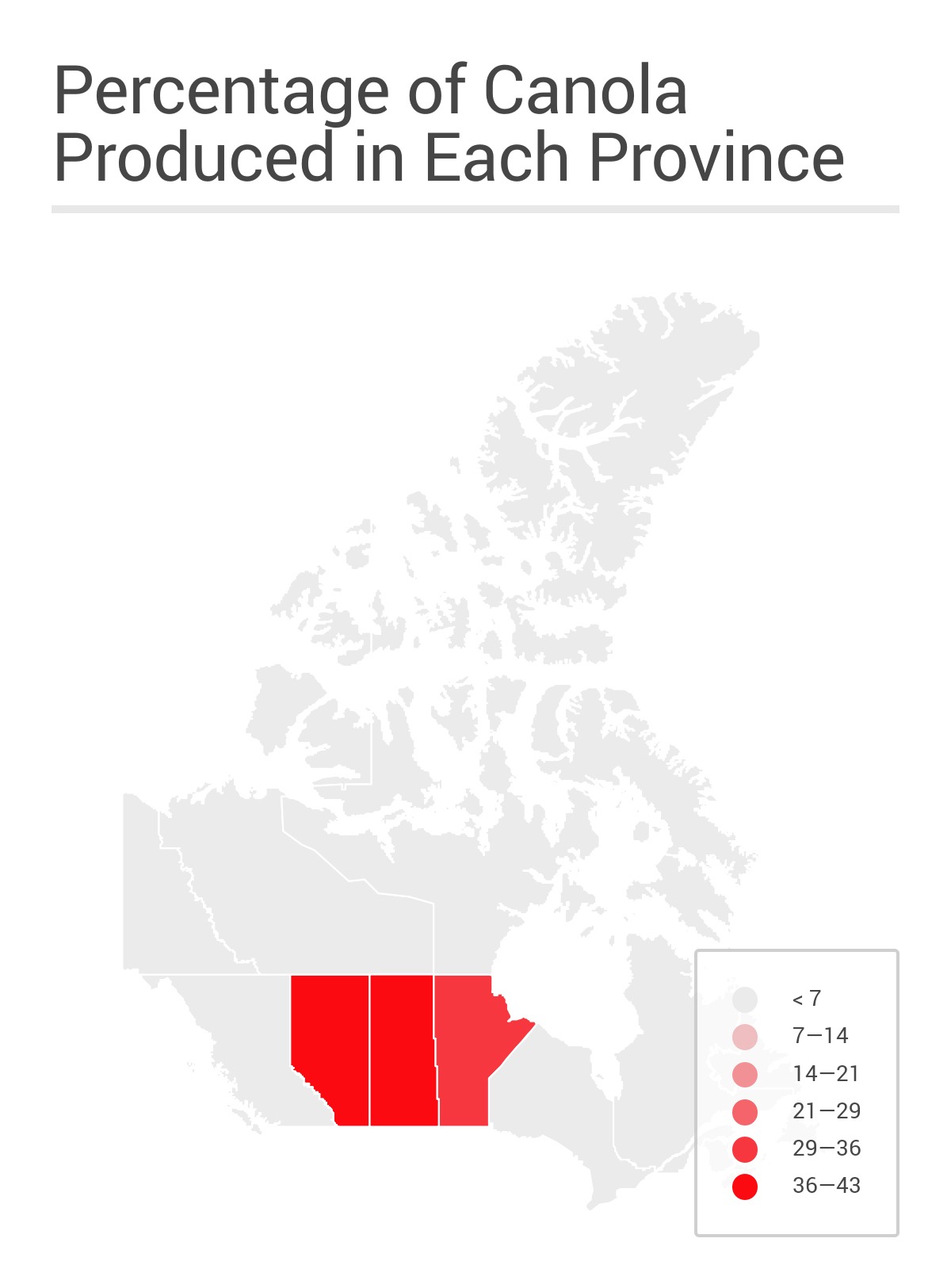China's Canola Shift: New Sources After Canada Dispute

Table of Contents
The Canada-China Canola Dispute: A Timeline and its Impact
The Canada-China canola dispute significantly impacted global canola trade. The strained diplomatic relationship between the two countries led to restrictions on Canadian canola exports, forcing China to seek alternative suppliers.
- 2018: China began expressing concerns about the quality and potential presence of pests in Canadian canola shipments, initiating investigations.
- 2019: Formal restrictions were imposed on Canadian canola imports, citing phytosanitary concerns. This marked a turning point, significantly impacting Canadian canola farmers and the Canadian economy.
- 2020 – Present: Further investigations and ongoing trade tensions persisted, with Canada maintaining its stance on the unsubstantiated nature of the claims. The dispute highlighted the vulnerability of relying on a single major export market.
The impact on Canadian farmers was devastating, leading to reduced production, lower prices, and significant economic losses. This disruption also sent ripples through the global canola market, impacting prices and supply chains. The dispute underscored the fragility of international trade relations and the potential for geopolitical factors to influence agricultural markets.
Alternative Canola Suppliers for China: A Global Overview
With Canadian canola imports restricted, China actively sought alternative sources. Several countries stepped up to fill the void, each with its own strengths and limitations.
| Country | Strengths | Challenges |
|---|---|---|
| Australia | Geographical proximity, established trade ties, high-quality canola | Capacity to meet China's entire demand |
| Ukraine | Large-scale canola production, competitive prices | Logistics and infrastructure limitations |
| Russia | Significant canola production | Quality concerns, political risks |
| France/EU | High-quality canola, strong food safety standards | Higher production costs, distance to China |
The scramble for alternative suppliers created a dynamic new landscape in the global canola market, impacting prices and supply chains worldwide.
The Role of Australian Canola in Filling the Gap
Australia emerged as a key beneficiary of the Canada-China dispute. Its geographical proximity to China, along with pre-existing strong trade relationships, allowed it to quickly increase its canola exports to meet a portion of China's demand. However, even Australia faced challenges in completely filling the gap left by Canada, highlighting the scale of the disruption. Australia's success also underscores the importance of diversification in both production and export markets.
Long-Term Implications of China's Canola Shift
China's canola shift has had far-reaching consequences, affecting global canola prices, supply chains, and geopolitical relations. The disruption spurred increased competition among canola-producing nations, leading to price fluctuations in the international market. Moreover, the incident emphasized the importance of diversification strategies for canola-producing countries to reduce reliance on individual markets.
- Price Volatility: The shift created price instability, impacting both producers and consumers.
- Supply Chain Disruptions: The reliance on new supply chains created logistical complexities and added costs.
- Geopolitical Implications: The dispute highlighted the intersection of trade and geopolitical relations.
- Food Security Concerns: The disruption underscored the vulnerability of global food supply chains.
- Increased Domestic Production: China is investing in its domestic canola production to reduce dependence on imports.
The Future of China's Canola Imports: Predictions and Analysis
Predicting the future of China's canola imports is complex, influenced by various interconnected factors. While Australia has successfully filled part of the gap, the long-term picture remains uncertain. Political relations, the success of China's domestic canola production efforts, and technological advancements in canola cultivation and processing will all play significant roles. It is likely that China will continue to diversify its import sources to mitigate future risks, seeking a mix of suppliers to ensure food security. The overall outlook points to a more fragmented and competitive global canola market.
Conclusion
China's canola shift represents a significant restructuring of the global canola trade, driven by the diplomatic dispute with Canada. The emergence of alternative suppliers, notably Australia, has reshaped the market landscape. The long-term implications are far-reaching, impacting global prices, supply chains, and geopolitical relations. Understanding the dynamics of China's canola shift is crucial for navigating the evolving global food security landscape. Stay informed on the evolving dynamics of China's canola shift and its global ramifications. Continue to follow our updates on the latest developments in the China's canola market.

Featured Posts
-
 Debate Erupts Tarlov Rebukes Pirros Pro Trade War Position On Canada
May 10, 2025
Debate Erupts Tarlov Rebukes Pirros Pro Trade War Position On Canada
May 10, 2025 -
 Chuyen Tinh Dep Cua Lynk Lee Va Ban Trai Sau Khi Chuyen Gioi
May 10, 2025
Chuyen Tinh Dep Cua Lynk Lee Va Ban Trai Sau Khi Chuyen Gioi
May 10, 2025 -
 Bundesliga 2 Matchday 27 Results And Colognes Rise To The Top
May 10, 2025
Bundesliga 2 Matchday 27 Results And Colognes Rise To The Top
May 10, 2025 -
 Us Deportations To El Salvador Concerns Over Due Process And Judicial Oversight
May 10, 2025
Us Deportations To El Salvador Concerns Over Due Process And Judicial Oversight
May 10, 2025 -
 Sovmestniy Dogovor Frantsii I Polshi Podrobnosti Ot Unian
May 10, 2025
Sovmestniy Dogovor Frantsii I Polshi Podrobnosti Ot Unian
May 10, 2025
